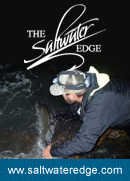(Editors Note
I sincerely hope that those of you that are represented by this Rep. Zeldin will remember this on the Election Day. In my humble opinion, John McMurray does more in any one given day of his life for recreational fishing than this clown has done in his life. The fact that he is squarely bought and paid for by for-hire industry is a sad day for the Long Island recreational fishing community. )
The content below is from Charles Witek One Angler Voyage blog at http://oneanglersvoyage.blogspot.com/
please consider visiting his blog and subscribe for updates
LOOSE CANNON IN CONGRESS ABUSES POWER, THREATENS FISHERY MANAGEMENT
Whether or not we want to admit it, fisheries management is a political process.
Yes, science now drives federal fisheries actions; federal fisheries managers employ the best available science in their largely successful efforts to end overfishing and rebuild overfished stocks, but that’s only because politicians first drafted the Magnuson-Stevens Fishery Conservation and Management Act, shepherded it through both houses of Congress, and ultimately signed the bill into law.
Many different legislators, and a few different presidents, were responsible for the good law we have today, but among others, we can thank the late Sen. Ted Stevens, Republican from Alaska, for reaching across the aisle and working with Sen. Warren Magnuson, Democrat from Washington, for drafting the law that now bears their names. And we can thank Sen. Stevens for his hard work, over the next three full decades, to make Magnuson-Stevens an ever-improving bill, that placed ever-greater emphasis on the need for conservation.
We can thank Republican President Gerald Ford for signing the original bill into law. Two decades later, we can thank former Republican Rep. Wayne Gilchrist of Maryland for his important role in getting the Sustainable Fisheries Act of 1996 through the House; without his hard efforts, the current requirements to end overfishing and rebuild overfished stocks might never have been made law.
And we can thank Republican President George W. Bush, perhaps the most underappreciated voice in the history of marine conservation, for his insistence that overfishing be ended once and for all, and his role in assuring that language intended to do just that was included in Magnuson-Stevens’ 2006 reauthorization.
Yes, there were a lot of Democrats involved in the process, too, and that’s precisely my point. For more than 30 years, fisheries conservation was a very bipartisan issue, with leaders of both the Republican and Democratic parties working hard to assure that the nation would enjoy sustainable fisheries in the long term.
Marine conservation is not a liberal/Democratic plot to weaken the economy and put people out of business. While it has historically been a Democratic priority, marine conservation had been a core value of the Republicans as well, for well over three decades.
At least, up until a few years ago, that’s how it used to be.
Today, the fisheries debate has been infected by a rabid partisanship, although some courageous legislators have been willing to cross party lines to oppose truly bad bills such as H.R.200, which would have severely weakened the conservation provisions ofMagnuson-Stevens.
Such partisan infection has broken out badly on in New York’s First Congressional District, where Congressman Lee Zeldin has demonstrated consistent hostility to conservation legislation of any sort, whether it addressed the oceans and fisheries, enforcing pollution protections in Chesapeake Bay, maintaining roadless areas in Alaska’s national forests or protecting clean rivers and streams throughout the United States. His contempt for any sort of environmental protection has earned him a lifetime score of just 10%–out of 100—from the League of Conservation Voters.
Like others seated in the far-right wing of the House’s minority party, Rep. Zeldin celebrates administration policies that elevate private profit above the public interest, proclaiming that
“With the removal of some deeply-flawed, job killing federal regulations, the trend has been for the federal government to step out of the way, making it easier for businesses to start up, build and expand. Reducing burdensome taxes and rescinding poorly designed regulations allow businesses to boom in our local communities as well as all across the country, translating into even more growth…”
Such sentiments, coupled with his dismal voting record on conservation issues, make it clear that he values clean air, clean waterways and healthy oceans far less than he values increased cash flows, and would probably have no problem going back to the policies of the mid-1950s, when humming factories produced products and jobs at the same time that they poured pollutants into the air and waters, and Ohio’s Cuyahoga River actually erupted in flames.
He treats fisheries the same way, emphasizing short-term economic gain rather than the long-term health of the resource, seeking to gut conservation measures that, the evidence overwhelmingly suggests, he doesn’t even understand.
The first, and perhaps best, example of that came in 2015, when he introduced H.R. 3070, the so-called EEZ Transit Zone Clarification and Access Act in the House.
The intent of that bill was nothing remarkable.
Since the mid-1980s, federal waters—the nation’s “Exclusive Economic Zone,” or “EEZ”—has been closed to striped bass fishing, initially as a measure intended to rebuild a collapsed striped bass stock, and later as tool to better control landings in the striped bass fishery. For many years, fishermen in some places—including New York’s 1st District—have been clamoring to be able to fish for striped bass in the EEZ, and legislators have been trying to change the law.
To that extent, Rep. Zeldin’s bill was nothing but another iteration of efforts that had failed in the past. But they way that he went about trying to change and “clarify” the EEZ, for fishery management purposes, was truly remarkable–in a very weird way.
The original version of H.R. 3070 provided
“For purposes of all Federal laws governing marine fisheries management—
(1) the landward boundary of the exclusive economic zone between the area south of Montauk, New York, and the area south of Point Judith, Rhode Island, shall be a continuous line running—
(A) from a point 3 miles south of the southernmost point of Montauk to a point 3 miles south of the southernmost part of Block Island, Rhode Island, and
(B) from such point 3 miles south of the southernmost point of Block Island, Rhode Island, to a point 3 miles south of the southern most [sic] point of Point Judith…”
I figured that readers might be interested in what that line might look like, so I inscribed it in black on the chart below.
Apparently, Rep. Zeldin never bothered to do that, because as you’ll note, his proposed change to the EEZ would have run square through the southeast corner of Block Island.
So, while his constituents in Montauk might have had greater access to waters west of the Island, Rep. Zeldin was apparently willing to make criminals out of honest surfcasters, who might not know that they were illegally fishing for stripers in federal waters, even though they were standing on shore.
Still, such negligence, laziness or lack of intellectual engagement is, sadly, not completely unknown in Washington. That’s particularly true when a constituent, who in today’s political climate could possibly also be a campaign donor, wants to get something done. And, anyway, the error was corrected in a later amendment to bill, which was made, it should be noted, by Arizona Rep. Gosar, who comes from a land unlike Long Island, where wild striped bass are unknown, but cartographic skills are, apparently, somewhat more common.
But what has taken Rep. Zeldin beyond the pale was not his casual approach to geography, but rather his recent attack on two dedicated people who are trying to help manage marine fisheries not only for the good of all New Yorkers, but the good of the nation, when he didn’t get his way on striped bass.
It was a snit worthy of a spoiled two-year-old, but not for a federal legislator, and it came out in a press release dated May 21, 2019, titled
“Rep. Zeldin Blasts NY’s ASMFC Delegates for Failure to Deliver for NY Fishermen.”
Reading it, it’s difficult to believe that it was written by staff in a Congressman’s office. Then again, remembering the EEZ-through-Block Island fiasco, maybe it wasn’t. It might have been something that was just passing through, given the Congressman’s imprimatur, but no serious thought.
Either way, it was wrong, both in its attacks and in its comments on the fishery management process, which again demonstrated a serious lack of understanding. Taking a look at some of the content makes that very clear.
The release begins
“Today, Congressman Lee Zeldin (R, NY-1) blasted New York’s delegates to the Atlantic States Marine Fisheries Commission (ASMFC) following the conclusion of this month’s spring meeting, during which no progress was made in rectifying New York’s already inequitable quotas for species across the board, including Black Sea Bass, Striped Bass and Fluke.”
While it’s true that New York’s commercial fluke quota probably is inequitable, that quota is set at the Mid-Atlantic Fishery Management Council, not ASMFC, so it’s not really reasonable to expect progress on that to emanate from a body with no control over the issue. And New York is already suing the NationalMarine Fisheries Service over the issue, so it’s not clear exactly what Rep. Zeldin expected the state’s ASMFC reps to do.
If, on the other hand, Rep. Zeldin was referring to recreational fisheries, then he probably missed the part about the 2019 summer flounder recreational harvest limit being increased by 74% above what it was in 2018—although that is coming from NMFS, too, and not from ASMFC. As far as striped bass go, New York doesn’t have a recreational quota, but fishes under a coastwide fishing mortality target—which means that there isn’t any recreational “quota” at all.
But, I suppose, those are just insignificant details. Sort of like the SE corner of Block Island…
Black sea bass deserve a mention all their own, because Rep. Zeldin got so much wrong. He claims that
“Last year, the ASMFC cut New York’s Black Sea Bass quota by 12%,”
which just isn’t true.
While the ASMFC originally tried to cut New York’s 2018 recreational allocation by that amount, it ultimately did not do so, thanks to the tireless efforts of the very New York State representatives to ASMFC who Rep. Zeldin reviled, who worked with their other colleagues in the northeast to win a 2% increase in 2018 quota.
And while yes, New Jersey also enjoyed an increased quota, that’s because New Jersey belongs to a different management region than does New York; New York, along with Connecticut, Rhode Island and Massachusetts, fought for a different result, but the southern states found it in their best interest to side with New Jersey. As Eric Reid, proxy for the Legislative Appointee from Rhode Island noted,
“I don’t need to go to two decimal places to count 6 to 4…When you’re bargaining from a losing position to start with, it really doesn’t make you all that comfortable.”
Given the current balance of power in the House of Representatives, Rep. Zeldin should be able to appreciate that sort of situation, and not be unduly critical. Or, perhaps we should all hold him to his own standard, and see how well he does in getting his own legislation past majority opposition in the 116th Congress.
And, of course, to condemn him should he fail.
But where things start to really go off the rails is when Rep. Zeldin discusses striped bass, saying
“New York fishermen faced a major blow due to ASMFC’s decision to cut the Atlantic Striped Bass fishery by up to 17% next year and maintain the current ban on striped bass fishing in the Block Island Sound Transit Zone. Rather than rooting these decisions in local stock assessments,”
for, after all, if there’s plenty off Montauk, nothing else,
“the ASMFC used flawed data that measures the Atlantic Striped Bass stock based on the entire eastern seaboard,”
just because they happen to migrate, and all spawn in the same places.
The “flawed data” claim is particularly interesting, given that the proposed reduction is based upon a stock assessment that found the bass overfished and subject to overfishing, which passed peer-review by a panel of respected fisheries scientists. Rep. Zeldin, as far as I know, has no formal training in biology, but he instinctively understood that the peer reviewers were wrong.
How could he come to such a conclusion? Because
“Alternative data that shows the Striped Bass stock is in a better place outside the 3-mile limit was not only thrown out by the Commission.”
“Alternative data?”
Those must be something like “alternative facts” that have, at times, been favorably mentioned by While House staff. That makes a sort of sense, as Rep. Zeldin is a very ardent supporter of the current Administration.
“Alternative facts have been called many things: falsehoods, untruths, delusions. A fact is something that actually exists—what we would call ‘reality” or ‘truth.’ An alternative is one of the choices in a set of given options; typically, the options are opposites of each other. So to talk about alternative facts is to talk about the opposite of reality (which is delusion), or the opposite of truth (which is untruth).”
So yes, we can probably think about “alternative data” in the same way.
I could go on, but this is already getting too long, and I still haven’t gotten to the most damning points, Rep. Zeldin’s attack on two U.S. citizens who have been working hard and long for the good of our fish and our fishermen: Jim Gilmore, who heads the New York State Department of Environmental Conservation’s Marine Division, and Capt. John McMurray, who sits as the proxy for the state’s Legislative Appointee to ASMFC.
Rep. Zeldin averred that
“The only thing that New York’s delegates to the ASMFC seem to be effective at is taking it lying down,”
which makes it abundantly clear that he never bothered to attend an ASMFC meeting, or even review a transcript, to see just how hard both Mr. Gilmore and Capt. McMurray work for the people of the state—although not, perhaps, for those few who share Rep. Zeldin’s apparent belief that killing more fish in the name of more profit should trump science-based management measures, and let the future be damned.
That’s an important point with Mr. Gilmore. He came into his position a while after his predecessor, Gordon Colvin, retired, and as is always the case in such situation, I didn’t know what to make of the man. I withheld my judgment for a while, until one day, maybe in 2009 or 2010, when he called a meeting at a facility down on Oak Beach, a stretch of barrier island in the Town of Babylon.
New York was considering a saltwater fishing license, which was badly needed to fund what was then the Marine Bureau’s operations. He was getting a lot of push back from the local tackle dealers and some of the for-hire boatmen—the same sort of folks who now support Rep. Zeldin—who were arguing that requiring a license might deter some people from fishing, and so cut into their income.
Every time Mr. Gilmore tried to explain how they might benefit from better management, the objections droned on and on.
Finally, he had enough. I’ll probably get some of the words wrong, but the gist of things right, when I quote him as saying, in a fed-up tone
“I live right across the bay there in Amityville”
and he pointed to where he grew up and still lives
“I took this job because I want to help my kids enjoy the same things that I did when I was their age. If you’re not willing to let me do that, I might as well quit right now!”
There was no doubt of the sincerity in his voice, and that was the point I decided that he had his head in the right place, was pointed in the right direction, and deserved all of the support he could get.
A decade has passed, and after watching him in action, I still feel that way. We might disagree on some issues, but even when he does what I think is the “wrong” thing, he does it for the right reason—protecting both the state’s fish and its fishermen in the long term.
Quite bluntly, as a New Yorker and a recreational fishermen, I’m proud that we have him, and just as proud of the team that he’s built. They work to hard to put up with the unjustified criticism, such as Rep. Zeldin’s, that they too often hear.
It is interesting to note that Rep. Zeldin says that
“It is imperative that New York State step up to the plate for our fishermen and pursue alternative data collection methods so that flawed decisions made by the ASMFC can be challenged,”
because Mr. Gilmore feels the same way, and wanted to use revenues from the saltwater license for just such a purpose.
However, as soon as the license was, in fact, adopted, it faced stiff opposition, including very strong opposition from Rep. Zeldin, who at the time was a state senator. In March 2011, his Senate office issued a release that featured a banner announcing
“Victory! Senator Lee M. Zeldin restoring your right to fish for free,”
after the license fee was repealed–and the DEC was denied much-needed funds.
So when Rep. Zeldin wants to know why New York isn’t able to perform its own data collection, he shouldn’t look to Mr. Gilmore or the folks at the DEC.
Instead, he should look in a mirror. And that’s not an “alternative fact.”
If Rep. Zeldin has a problem with Mr. Gilmore, it’s because the DEC does its job too well, and doesn’t allow the states public resources to be abused by a private few.
It’s a similar case with Capt. McMurray, a former U.S. Coast Guardsman who was involved in fisheries enforcement efforts while in the service, and now runs a very successful light-tackle guide service. Capt. McMurray is a passionate supporter of science-based management, who has served three terms on the Mid-Atlantic Fishery Management Council, and has also served as proxy to legislative appointees to ASMFC from both sides of the aisle.
Rep. Zeldin attacks him as well, calling him an
“anti-fishermen fisherman…, the antithesis of who should be appointed to the ASMFC,”
who has
“repeatedly villainized the very hard-working Long Islanders he is supposed to represent.”
That probably comes as a big surprise to all of the anglers who swarm into his talks at area clubs, visit him when he speaks at local venues, and happen to be one of his many friends. But it comes as no surprise as a political tactic, for it is line straight out of the radical right’s playbook, where a conservation advocate is being denigrated for speaking out against those who would use what Rep. Zeldin calls “alternative data” to exploit public resources in the short term, and leave little but desolation behind.
I’ve known Capt. McMurray for about 20 years, and know that he gets along with fishermen very well, although he has gotten into some problems with poachers, who get very upset when he sends their non-alternative data to the Coast Guard and DEC. I know that he has kids and, like Mr. Gilmore, he wants them to have the same rich life near that water that he has enjoyed.
That makes him an obstacle to some.
I also know that he’s a guy who, like all of us, is trying to keep things together.
I know that his power and influence, such as it is, is very small, especially when compared to that of a federal legislator. And for a federal legislator to use his much greater power, position and bully pulpit to—there is no other word—bully a private citizen volunteering his time to a public cause, and to treat a dedicated state employee in the same way is, in my view, a blatant abuse of position and power.
It is wrong.
It is inexcusable.
It is what Rep. Zeldin has done.












Wow, thank you for posting this. It’s refreshing to see those in the sport mans world call out the political wrangling that shapes conversation legislation. The saltwater fishing license fiasco proves it. The RFA needs to be called out also. They repeatedly back politicians that may give them a larger share of the harvest, but hurt the ecosystems needed to support their fisheries. – Jim.
↓He’s a Republican, say no more…
↓Now that’s not a very nice thing to say bub…….
↓@ Zeno any info on Striperthon dates this year?
↓I’m preparing already
if it happens it will be in the fall
↓